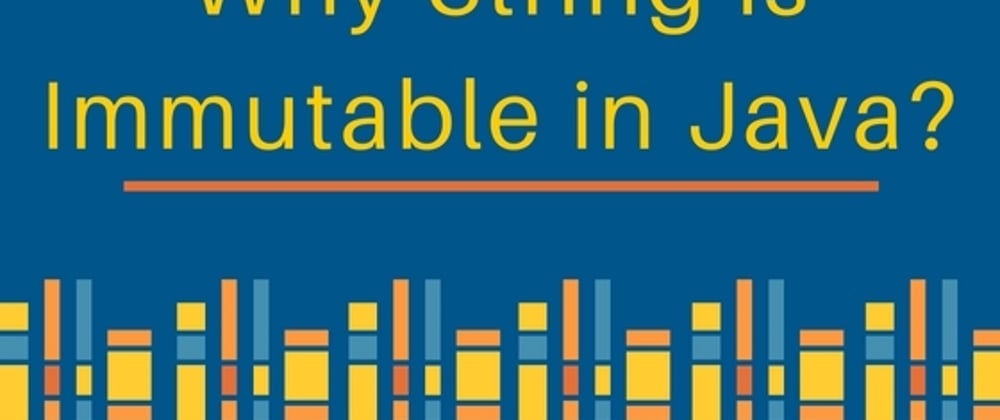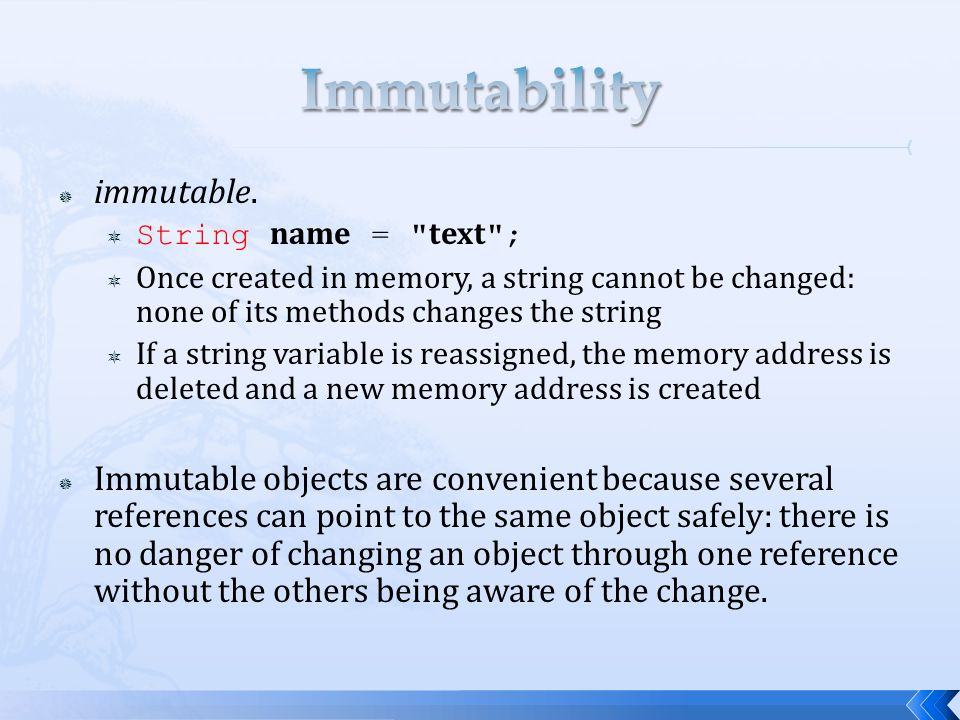Why Are Strings Immutable in Java? Necessary Expertise for Designers
What Is Immutable Strings and Exactly How It Works
In the realm of programs, understanding the concept of immutable strings is vital for developing protected and robust applications. Unalterable strings refer to strings that can not be changed after they are developed, guaranteeing data integrity and predictability within the code.
The Fundamentals of Immutable Strings
Immutable strings, as an essential idea in programs, are personality series that can not be transformed once they are created. This means that once a string is appointed a value, that value can not be modified. In languages like Python and Java, strings are immutable objects, resulting in numerous effects in terms of memory administration and data honesty.
One of the crucial benefits of unalterable strings is that they provide a sense of safety in information adjustment. Given that the web content of an immutable string can not be modified, it makes sure that the original information stays intact, minimizing the danger of unintentional modifications during program implementation (Why are strings immutable in Java?). This residential property likewise streamlines debugging procedures, as designers can trust that when a string is defined, its worth will certainly not be inadvertently modified
In addition, immutable strings facilitate efficient memory use. When a new string is developed based upon an existing one, instead of customizing the original string, the brand-new value is stored separately. This approach enhances efficiency by minimizing memory fragmentation and simplifying memory allocation procedures. Generally, understanding the essentials of unalterable strings is important for understanding programming ideas and optimizing code performance.
Benefits of Immutable Strings
Structure upon the security and efficiency benefits of immutable strings, their benefits prolong to boosting code reliability and streamlining simultaneous programs jobs. By being immutable, strings can not be modified after development, which removes the risk of unexpected adjustments in the data they keep. This fundamental immutability makes sure that once a string is produced, its value remains constant throughout the program's execution, minimizing the opportunities of insects triggered by unanticipated changes.
In addition, unalterable strings add to code reliability by making it simpler to reason concerning the state of a program. Given that strings can not be altered, designers can trust that a string will always hold the exact same value, streamlining debugging and maintenance efforts. This predictability leads to extra stable and dependable codebases.

Application in Shows Languages
Within various programming languages, the consolidation of unalterable strings is a fundamental element that affects just how data is dealt with and manipulated within code structures. The execution of unalterable strings varies across different programming languages, with each language offering its own devices to support this concept.

In comparison, languages like C and C++ do not have integrated support for unalterable strings. Developers in these languages need to by hand implement immutability by imposing rules within their code to stop straight alterations to string items.
Finest Practices for Dealing With Immutable Strings
When handling unalterable strings in shows languages like Java and Python, adhering to ideal practices ensures safe and reliable data control. Among the key best techniques is to utilize StringBuilder or StringBuffer as opposed to straight manipulating strings, especially when taking care of substantial concatenation procedures. These courses give mutable choices for string manipulation, aiding to avoid unnecessary memory appropriations and enhancing efficiency.
In addition, when functioning with delicate information such as passwords or API tricks, it is critical to stay clear of saving them as simple text in unalterable strings. Using protected storage mechanisms like char selections or specialized collections for taking care of delicate details aids alleviate protection dangers associated with immutable strings.
Real-world Applications and Instances
Exploring useful applications of immutable strings in various sectors discloses their considerable effect on data honesty and system dependability. In the health care market, immutable strings play an essential duty in guaranteeing the security and discretion of client data. By protecting against unapproved adjustments to sensitive details such as medical documents and prescriptions, immutable strings click for info assist maintain conformity with strict personal privacy laws like HIPAA.
Monetary institutions additionally take advantage of the unalterable nature of strings to enhance the protection of customer data and deal documents. Unalterable strings assist protect against fraud and unapproved alterations to economic information, giving a robust defense versus cyber threats and making sure the count on and self-confidence of customers.

Verdict
Finest methods for working with immutable strings consist of preventing direct alterations and making use of techniques that return new string things. Real-world applications of immutable strings include information file encryption, caching, and string manipulation jobs.
Immutable strings refer to strings that can not be altered after they are developed, guaranteeing information integrity and predictability within the code. When a new string is developed based on an existing one, rather than changing the initial string, the new value is saved individually.In languages like Java and Python, strings are immutable by default, suggesting that once a string item is developed, its value can not be transformed - Why are strings immutable in Java?. Ideal practices for functioning with immutable strings include avoiding straight modifications and using techniques that return brand-new string items. Real-world applications of unalterable strings include data security, caching, and string manipulation jobs